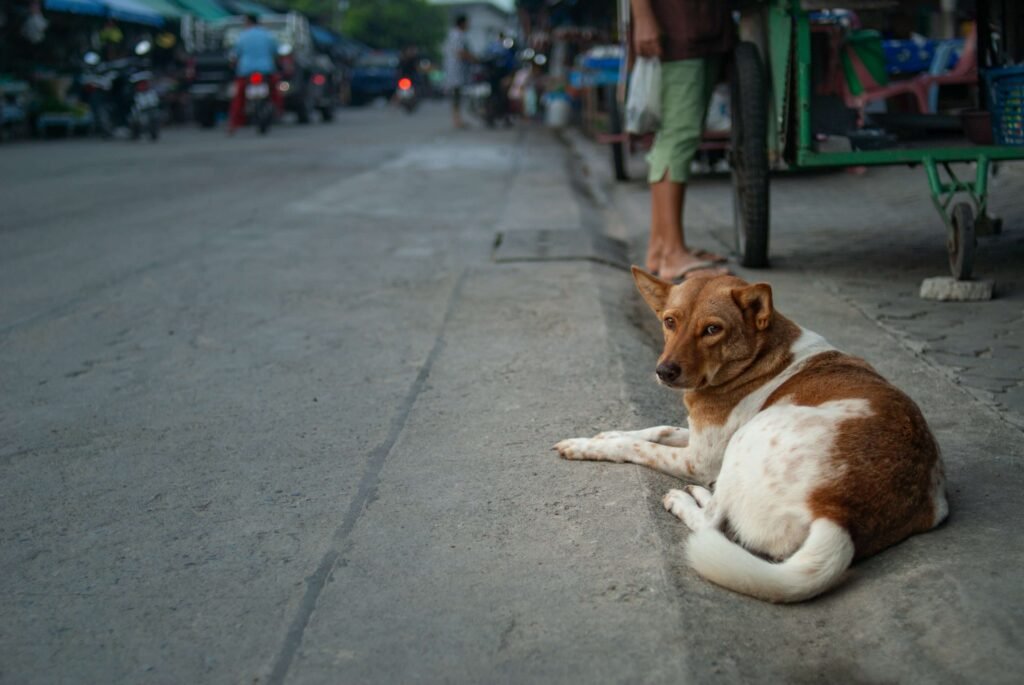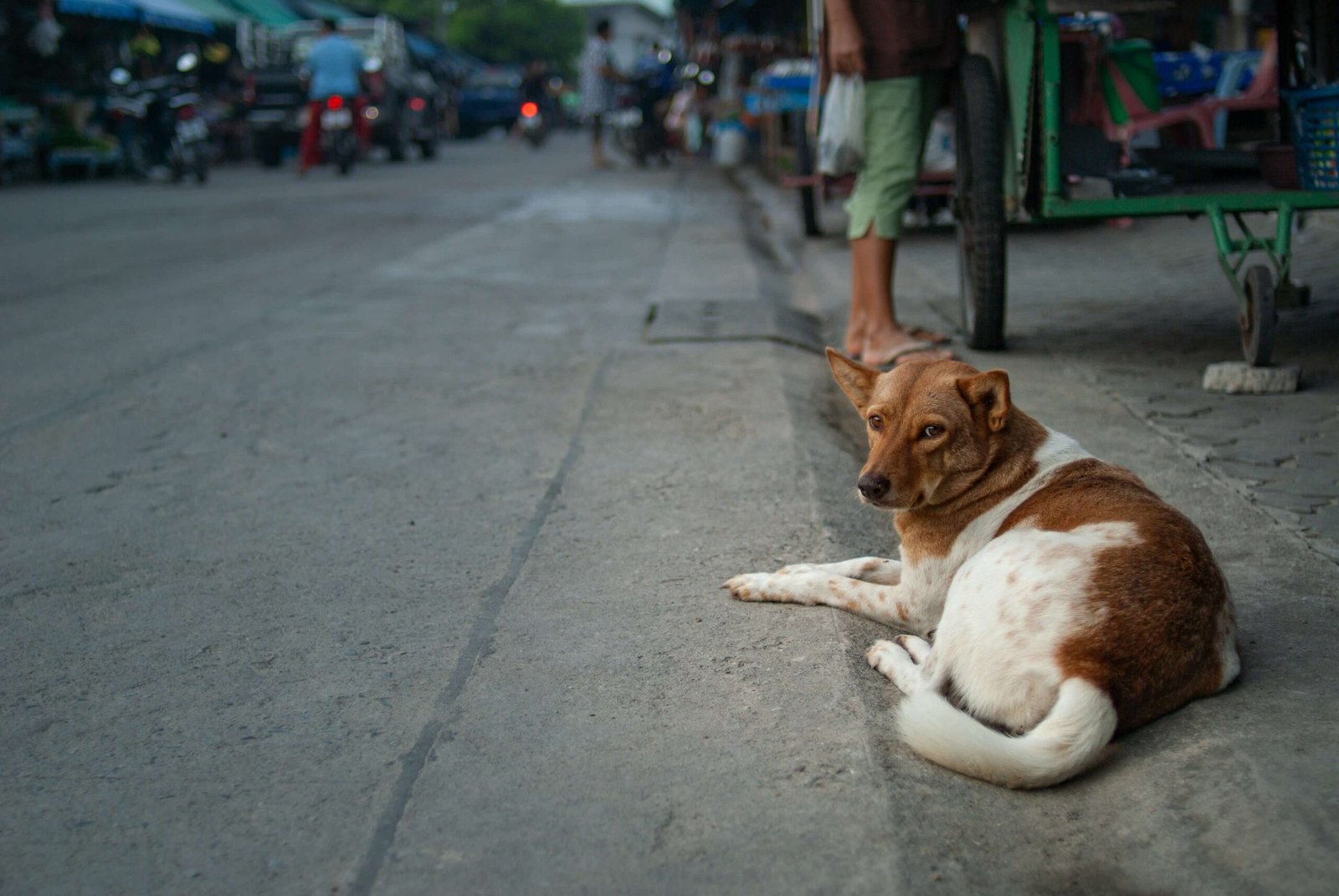Discovering the Charm of Vietnamese Dog Breeds
Vietnam is a country rich in culture, history, and biodiversity, and its canine companions are no exception. Vietnamese dog breeds are unique, reflecting the region’s diverse landscapes, traditions, and needs. From loyal guardians to skilled hunters, these dogs have played vital roles in the lives of their human companions for generations. While many of these breeds remain relatively unknown outside Vietnam, they are gaining attention worldwide for their intelligence, resilience, and distinctive traits.
In this blog post, we’ll explore the fascinating world of Vietnamese dog breeds, uncovering their histories, characteristics, and what makes them truly special. Whether you’re a dog enthusiast or simply curious about these remarkable animals, this guide will introduce you to some of Vietnam’s most cherished four-legged treasures.
Top Vietnamese Dog Breeds: A Closer Look
Vietnam is home to several indigenous dog breeds, each with its own unique qualities and purposes. These dogs have adapted to the country’s varied environments, from mountainous regions to bustling cities. Below, we highlight some of the most notable Vietnamese dog breeds and their defining traits:
Phu Quoc Ridgeback : Known for its distinctive ridge of hair along its back, this breed is agile, intelligent, and highly independent.
Vietnamese Hound : A skilled hunting dog with exceptional speed and endurance, often used in rural areas for tracking prey.
Dingo-like Village Dogs : These semi-wild dogs are versatile survivors, often found roaming freely in villages and adapting to various tasks.
Bac Ha Dog : A sturdy, medium-sized breed originating from northern Vietnam, prized for its loyalty and protective instincts.
Hmong Bobtail : Characterized by its short tail and muscular build, this breed excels as both a guardian and a working dog.
These breeds showcase the diversity and adaptability of Vietnamese dogs, each one a testament to the country’s rich cultural heritage and natural environment.
Key Characteristics of Vietnamese Dog Breeds
What sets Vietnamese dog breeds apart from others around the world? Their unique traits and behaviors make them well-suited to their native environments and the roles they traditionally fulfill. Here’s a breakdown of their key characteristics:
Adaptability : Many Vietnamese breeds thrive in harsh climates, from humid lowlands to rugged highlands.
Loyalty : These dogs are known for forming strong bonds with their owners, making them excellent companions.
Intelligence : Vietnamese breeds often display sharp problem-solving skills and quick learning abilities.
Energy Levels : Most of these dogs are highly active and require plenty of exercise to stay healthy and happy.
Guardian Instincts : Many Vietnamese breeds have natural protective tendencies, making them ideal watchdogs.
These characteristics not only define Vietnamese dog breeds but also highlight their versatility and resilience, traits that have been honed over centuries.
Check this guide 👉Therapy Dog Breeds: Best 7 Expert Tips!
Check this guide 👉Playful Dog Breeds: Best 7 Expert Tips!
Check this guide 👉Lazy Dog Breeds: Best 7 Expert Tips!

Vietnamese Dog Breed | Unique Feature |
|---|---|
Phu Quoc Ridgeback | Distinctive ridge of hair along the back |
Vietnamese Hound | Exceptional speed and hunting skills |
Bac Ha Dog | Sturdy build and protective nature |
Hmong Bobtail | Short tail and muscular physique |
Dingo-like Village Dogs | Versatile and semi-wild adaptability |
Caring for Vietnamese Dog Breeds: Tips and Advice
If you’re considering bringing a Vietnamese dog breed into your home, it’s important to understand their specific care requirements. These dogs have unique needs based on their origins and temperaments. Here are some essential tips to ensure their well-being:
Exercise Needs : Provide ample opportunities for physical activity, such as long walks or playtime, to burn off excess energy.
Balanced Diet : Feed them a nutritious diet tailored to their size, age, and activity level to support their overall health.
Socialization : Introduce them to new people, animals, and environments early to foster confidence and reduce anxiety.
Grooming Routine : Regular brushing and bathing are necessary to maintain their coat, especially for breeds like the Phu Quoc Ridgeback.
Training Consistency : Use positive reinforcement techniques to train them effectively, as they respond well to patience and rewards.
By meeting these care requirements, you can ensure your Vietnamese dog thrives in its new environment and remains a joyful companion.
Why Choose a Vietnamese Dog Breed? Key Advantages
Vietnamese dog breeds offer a range of benefits that make them appealing to dog lovers worldwide. Their unique qualities and adaptability set them apart from more common breeds. Here’s why you might consider adopting one of these remarkable dogs:
Rich Heritage : Owning a Vietnamese breed allows you to connect with Vietnam’s cultural and historical legacy.
Versatility : These dogs excel in various roles, from family pets to working companions, depending on their breed.
Low Maintenance : Many Vietnamese breeds are naturally hardy and require less grooming compared to other breeds.
Strong Bonds : Their loyalty and affectionate nature make them wonderful additions to any household.
Rarity Factor : Choosing a Vietnamese breed means owning a dog that stands out and sparks curiosity among fellow dog enthusiasts.
With so many advantages, it’s no wonder these breeds are capturing the hearts of dog lovers around the globe.
Traditional Roles of Vietnamese Dog Breeds in Rural Communities
Vietnamese dog breeds have long been valued for their roles in rural communities, where they serve as more than just pets. These dogs are integral to daily life, performing tasks that range from guarding property to assisting with hunting. Here’s a look at some of their traditional roles:
Guardians of the Home : Many Vietnamese breeds, like the Bac Ha Dog, are natural protectors and excel at keeping intruders at bay.
Hunting Companions : The Vietnamese Hound is prized for its speed and keen sense of smell, making it an invaluable partner during hunts.
Herding Assistants : Some breeds help manage livestock, ensuring animals stay within designated areas without straying.
Companions in Daily Life : Beyond work, these dogs provide companionship and emotional support to their families.
Protectors of Livestock : Certain breeds are trained to guard livestock from predators, ensuring the safety of valuable farm animals.
These roles highlight the versatility and importance of Vietnamese dog breeds in rural settings, where their skills and loyalty are deeply appreciated.
Challenges Facing Vietnamese Dog Breeds Today
Despite their rich heritage, Vietnamese dog breeds face several challenges in modern times. From declining populations to lack of recognition, these issues threaten the survival of some breeds. Below are the key challenges they encounter:
Limited Global Awareness : Many Vietnamese breeds remain unknown outside their native country, limiting their adoption and preservation efforts.
Crossbreeding Risks : The rise of crossbreeding has led to a dilution of purebred lines, endangering the genetic integrity of these dogs.
Urbanization Impact : As Vietnam becomes more urbanized, traditional roles for these dogs are disappearing, reducing their perceived value.
Lack of Breed Standards : Unlike internationally recognized breeds, many Vietnamese breeds lack formal breed standards, hindering conservation efforts.
Economic Barriers : For rural families, maintaining purebred dogs can be costly, leading to a decline in breed purity.
Addressing these challenges is crucial to preserving the unique legacy of Vietnamese dog breeds for future generations.
How to Support the Preservation of Vietnamese Dog Breeds
Preserving Vietnamese dog breeds requires collective effort from enthusiasts, breeders, and organizations worldwide. If you’re passionate about these dogs, there are several ways you can contribute to their protection and promotion. Here’s how you can help:
Adopt or Foster : Consider adopting a Vietnamese breed to provide them with a loving home and support their population growth.
Raise Awareness : Share information about these breeds through social media, blogs, or community events to educate others about their uniqueness.
Support Breed Clubs : Join or donate to organizations dedicated to preserving and promoting Vietnamese dog breeds.
Encourage Responsible Breeding : Advocate for ethical breeding practices to maintain the genetic health and purity of these dogs.
Document Their Stories : Record and share stories, photos, and videos of Vietnamese breeds to create a lasting digital archive of their legacy.
By taking these steps, you can play a vital role in ensuring that Vietnamese dog breeds continue to thrive and inspire admiration worldwide.
Frequently Asked Questions About Vietnamese Dog Breeds
Are Vietnamese dog breeds good for first-time owners?
Some breeds, like the Phu Quoc Ridgeback, may be challenging for beginners due to their independence, while others are more adaptable.
Do Vietnamese dogs require special diets?
A balanced diet suited to their activity level and size is sufficient, though some may benefit from locally sourced ingredients.
How rare are Vietnamese dog breeds outside Vietnam?
Many of these breeds are still relatively uncommon internationally but are gaining popularity among enthusiasts.
Are Vietnamese dog breeds aggressive?
Not inherently, though proper training and socialization are essential to ensure they remain well-behaved and friendly.
Can Vietnamese dogs adapt to urban living?
Yes, with enough exercise and mental stimulation, these dogs can thrive in city environments.
A Celebration of Vietnamese Dog Breeds
Vietnamese dog breeds are a testament to the beauty and diversity of the animal kingdom. From the agile Phu Quoc Ridgeback to the loyal Bac Ha Dog, these breeds embody the spirit of Vietnam—resilient, adaptable, and deeply connected to their surroundings. As more people discover the charm of these remarkable dogs, their global presence continues to grow. Whether you’re drawn to their unique appearance, impressive skills, or rich cultural significance, Vietnamese dog breeds have something to offer every dog lover. By appreciating and preserving these breeds, we honor not only their heritage but also the bond between humans and their faithful companions.
Do Cats Have Taste Buds? Best 7 Expert Tips! – Discover how cats experience flavors and why their taste is so unique.
Do Dogs Have Taste Buds? Best 7 Expert Tips! – Discover how dogs experience taste, their preferences, and what it means for their diet and health.
Can Cats Taste Sweet? Best 7 Expert Tips! – Discover why cats can’t taste sweetness, how it affects their diet, and tips to keep them healthy and happy.
Can Dogs Taste Sweet? Best 7 Expert Tips! – Discover how dogs perceive sweetness, which foods are safe, and tips to manage their sweet cravings responsibly.





